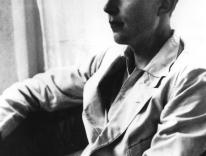Even more thanmost inaugural addresses, today's speech by the new president will be greatly anticipated but, like most of these addresses,little remembered. Though who knows, Obama could join the ranks of JFK, FDR, and even Lincoln (especially the second time out), though that is doubtful. Part of the hope for something memorable lies in Obama's inspiring rhetorical style, which he reined in as the campaign wore on and he faced charges of being all talk, no action. Will he return to his old style? Today's WaPo has a good piece on Obama's "Way with Words."The other question, of course is: What is an inaugural address for? Historian Jill Lepore has an excellent overview of inaugural speeches in a recent New Yorker. In "The Speech: Have Inaugural Addresses been getting worse?", Lepore analyzes the speeches over the years, noting, among other things, how they were once delivered with littlethought to performance but mainly to be read as historical documents. Today, it is the delivery that counts. The narrative spine of Lepore's piece, however, is thethe diaryof James Garfield who, as the president-elect preparing for his March 1881 inauguration, read all previous addresses and wondered what he should say, and how.It is fascinating reading, but Lepore does seem to repeat one apparent urban legend: That George Washington spontaneously added the words, "So help me God" to the end of the oath of office. As Cathy Grossman writes in USA Today, historians now believe it was Chester Arthur who first used the words, as there is no previous reference to Washington doing so. First no cherry tree. Now this! Such is the often way of hallowed "traditions." Usingthe white smoke of burned ballots to signal the election of a pope was apparently first used in 1914, though we assume it has "always" been that way.Same for "So help me God." Though President Arthur was being sworn inafter Garfield's assassination (Garfield was shot in July, but died in September 1881, likely because of poor medical care as much as anything),so his invocation of divine aid would be understandable. As will Obama's today.


